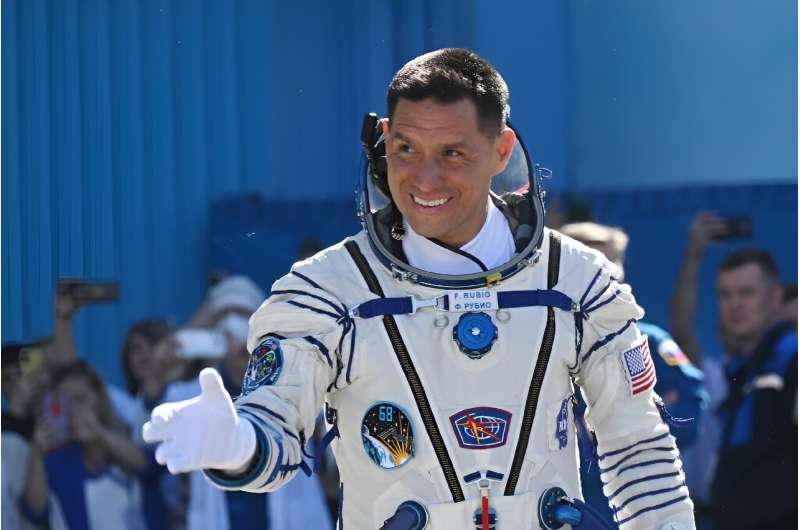"I think that'll be a really good milestone for our nation to achieve," said Rubio, who is a doctor by training and a helicopter pilot.
The previous US record was set in 2022 by Mark Vande, who spent 355 days in space. The world record is held by Russian cosmonaut Valeri Polyakov at 437 days.
Rubio is scheduled to return to Earth on September 27; at that point he will have spent 371 days in space.
When Rubio traveled to the ISS last year on a Russian Soyuz rocket with two cosmonauts, the plan was for him to stay six months, which is the usual mission length.
As per normal procedure that rocket stayed hooked up to the ISS as an emergency escape vessel if necessary, and was supposed to bring those three travelers home in December. But it suffered a leak, probably due to impact from a tiny meteorite.
So the Russian space agency Roscosmos brought that rocket home and sent up another with no crew aboard.
Rubio and his two colleagues carried out the mission of the crew that was initially due to travel to the ISS on the second rocket and replace them.
Rubio, who is Latino, has seen crews come and go while up in space—a total of 28 people of various nationalities.
"If I do the math right, that's almost five percent of the humans that have ever been to space, which is pretty incredible," Rubio said Wednesday.
He described living and doing experiments in low Earth orbit.
"Once you're up here for a little bit, you really get focused on the work and sometimes you forget to appreciate the fact that you are floating around and that you have this amazing view down below you," Rubio said.
He said the quarters are somewhat cramped, likening them to a five-bedroom house.
"And so, psychologically for a year, that was a little bit of a challenge," Rubio said.
The US record for most days in space over a lifetime is held by former astronaut Peggy Whitson, with 675 days during several missions.
© 2023 AFP



